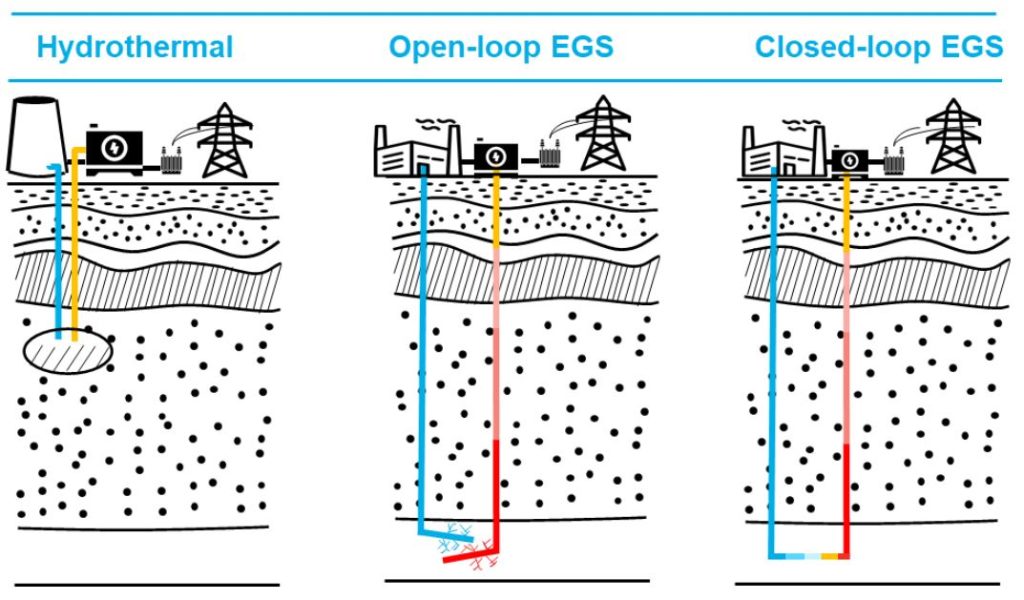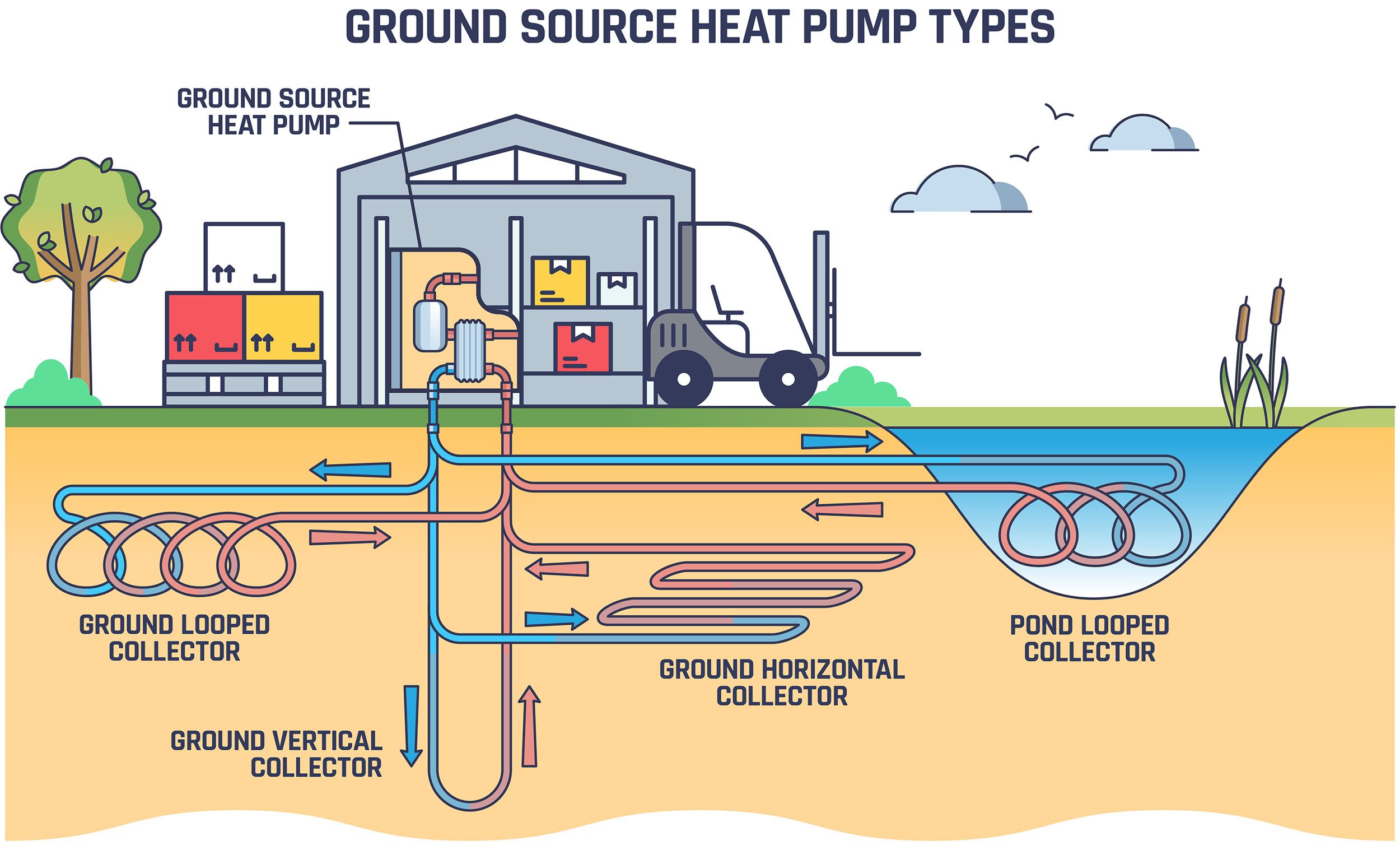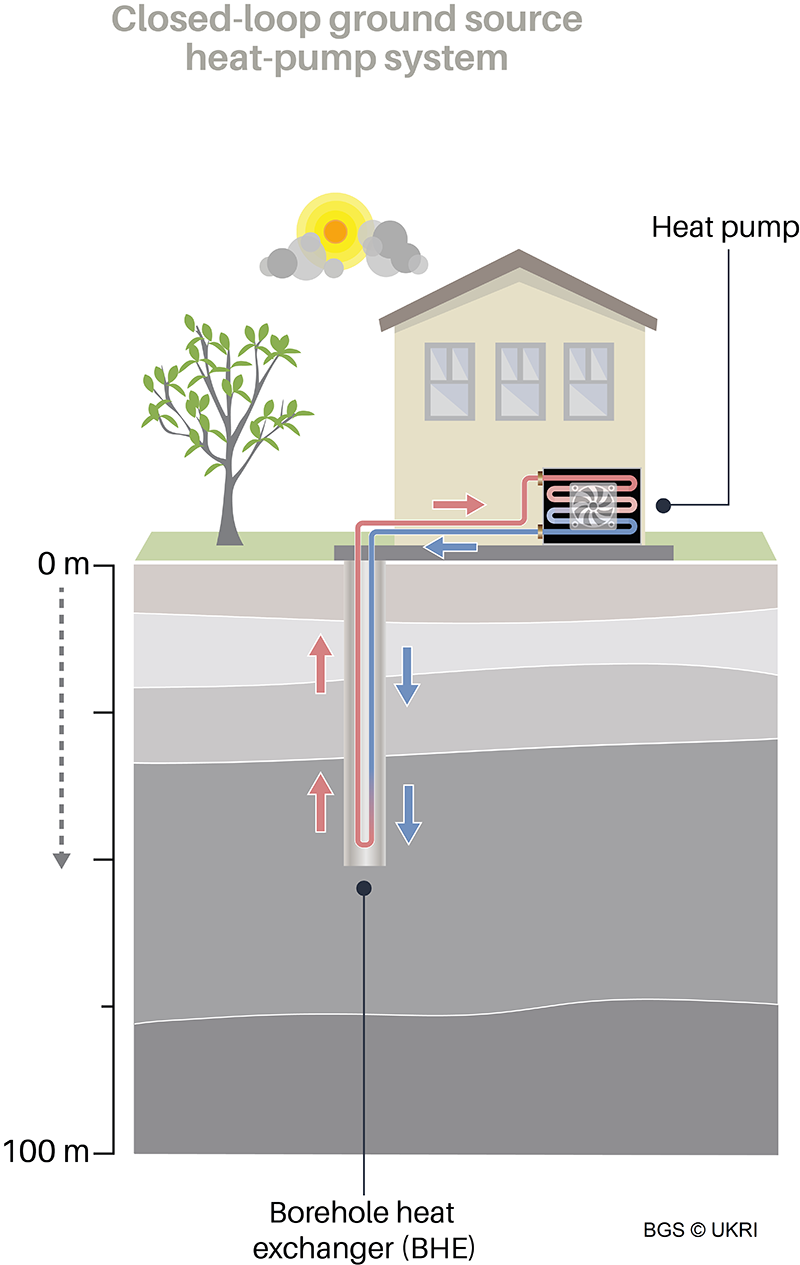The Secret Of Info About Which Is Better, Open-loop Or Closed-loop Geothermal

Geothermal Heating
1. Understanding Geothermal Basics
So, you're thinking about tapping into the Earth's natural warmth to heat and cool your home? Smart move! Geothermal systems are super efficient and environmentally friendly. But before you jump in, you'll need to decide which type of system is right for you: open-loop or closed-loop. It's like choosing between a refreshing dip in a spring-fed lake or a relaxing soak in your own private pool — both great, but different experiences.
Basically, geothermal systems use the stable temperature of the earth a few feet below the surface to regulate your home's temperature. In the winter, they pull heat from the ground. In the summer, they dump heat back into the ground. It's a pretty nifty trick, and it can save you a bundle on your energy bills.
Think of the ground as a giant battery, storing solar energy throughout the year. Geothermal systems simply act as a transfer mechanism, moving that energy where you need it, when you need it. And because the ground temperature stays relatively constant year-round, these systems are far more efficient than traditional heating and cooling methods.
Choosing between an open-loop or closed-loop system depends on your specific property and needs. Factors like water availability, soil type, and budget all play a role. Let's delve deeper into each type to help you make the best decision.

Geothermal Open Loop System
Open-Loop Geothermal
2. How Open-Loop Systems Work
An open-loop geothermal system, also known as a groundwater system, is like having your own personal well for heating and cooling. It works by drawing water from a well or other water source, circulating it through a heat exchanger, and then returning the water to the ground, typically through a separate injection well or drainage system. Think of it as borrowing water, using its thermal energy, and then giving it back, slightly cooler or warmer depending on the season.
The efficiency of an open-loop system can be truly impressive because it's directly using the consistent temperature of groundwater. Imagine the consistent temperature of a deep well. This direct use translates to excellent heat transfer and lower operating costs, provided you have a good, clean water source.
However, that's the catch. Water quality is paramount. If the water is silty, mineral-rich, or contains other contaminants, it can cause scaling and corrosion in the system, leading to maintenance headaches and potentially reducing its lifespan. Regular water testing and treatment might be necessary, adding to the overall cost.
Also, local regulations might restrict the use of open-loop systems due to concerns about groundwater contamination or depletion. So, before you get too excited about tapping into nature's reservoir, check with your local authorities to ensure it's even allowed in your area. Consider it like checking for the permit before throwing the best block party in the neighborhood.

Closed-Loop Geothermal
3. Understanding Closed-Loop Configurations
A closed-loop geothermal system, on the other hand, is a self-contained circuit. It uses a loop of piping buried in the ground, filled with a water-antifreeze solution. This solution circulates through the piping, exchanging heat with the surrounding earth, and then returns to the heat pump inside your home. No groundwater is involved, making it a more environmentally friendly option in many cases.
There are three main types of closed-loop systems: horizontal, vertical, and pond/lake loops. Horizontal loops are the most common, requiring a trench to be dug in your yard. Vertical loops involve drilling boreholes deep into the ground. Pond/lake loops are ideal if you have a large body of water nearby, as the piping can be submerged in the water.
The advantage of a closed-loop system is that it's less susceptible to water quality issues. Since the water never comes into direct contact with the groundwater, there's no risk of scaling or corrosion. It's also a more universally applicable option, as it can be installed in areas where open-loop systems are restricted.
However, closed-loop systems can be less efficient than open-loop systems, especially if the ground isn't thermally conductive. The effectiveness of a closed-loop system can be influenced by the soil type, moisture content, and how well the loop is designed and installed. You might need a larger loop field to achieve the same heating and cooling capacity as an open-loop system, which can increase the upfront cost.

Geothermal Technologies British Geological Survey
Open-Loop vs. Closed-Loop
4. Comparing the Pros and Cons
Alright, let's break it down. Open-loop systems are generally more efficient and can offer lower operating costs, but they're dependent on having a clean, reliable water source and may face regulatory hurdles. They're like a high-performance sports car — fast and exciting, but requiring specific conditions to truly shine.
Closed-loop systems are more versatile and less prone to water quality issues, but they can be less efficient and more expensive to install, especially if a large loop field is required. They're like a dependable SUV — reliable and adaptable, but perhaps not quite as thrilling as the sports car.
Ultimately, the best choice depends on your individual circumstances. Consider the following factors: water availability and quality, soil type, available space, budget, and local regulations. It's wise to get a professional assessment of your property to determine which type of system is the most suitable.
Choosing the right geothermal system can be a game-changer for your home's comfort and energy efficiency. By carefully weighing the pros and cons of open-loop and closed-loop systems, you can make an informed decision that will save you money and help protect the environment for years to come.

Geothermal Heating Open Loop
Making the Right Choice for Your Home
5. Factors to Consider
Beyond the core technical aspects, think about the long-term implications. How long do you plan to stay in your home? Geothermal systems are a significant investment, but they also add value to your property. If you're planning to sell in the near future, a well-maintained geothermal system can be a major selling point.
Also, consider the aesthetics. Do you mind having trenches dug in your yard for a horizontal closed-loop system? Or would you prefer a less intrusive vertical loop, even if it's more expensive? Think of it like landscaping. You want a system that not only works well but also looks good.
Don't underestimate the importance of professional installation. A poorly installed geothermal system can be a nightmare, leading to inefficiencies, breakdowns, and costly repairs. Choose a reputable installer with experience in both open-loop and closed-loop systems. Check their references, read reviews, and make sure they're properly licensed and insured.
And finally, remember to factor in any potential rebates or tax credits. Many states and local governments offer incentives for installing geothermal systems, which can significantly reduce the overall cost. Take advantage of these opportunities to make your investment even more worthwhile. Going geothermal is a big step, but with careful planning and the right system, you'll be enjoying cozy warmth in the winter and refreshing coolness in the summer — all while saving money and helping the planet.

Frequently Asked Questions (FAQs)
6. Your Geothermal Questions Answered
Q: How long do geothermal systems typically last?
A: Geothermal heat pumps can last for 20-25 years, while the underground loop system can last for 50 years or more. Pretty impressive, right? It's like planting a tree that keeps your home comfortable for decades!
Q: Are geothermal systems noisy?
A: Nope! Geothermal systems are generally very quiet. The heat pump is usually located indoors, and the underground loop system makes no noise at all. You'll barely know it's there.
Q: What kind of maintenance is required for geothermal systems?
A: Geothermal systems require very little maintenance. You should have the system inspected annually by a qualified technician. With open loop systems, water quality may need to be tested periodically as well.
Q: Will a geothermal system work in cold climates?
A: Absolutely! In fact, geothermal systems are particularly effective in cold climates because the ground temperature is warmer than the air temperature in the winter. It's like having a secret weapon against the frigid weather.